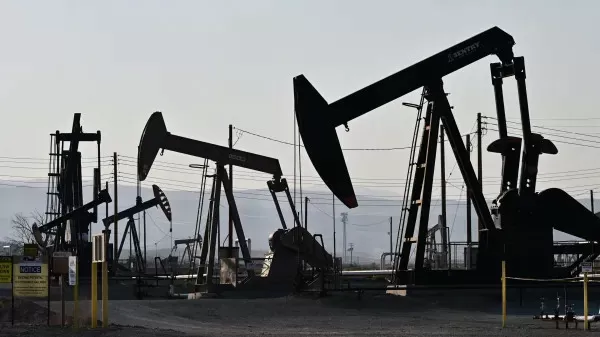The threat of a major war in the Middle East has once again pushed up oil prices, but so far, the market has remained relatively stable as it has weathered similar situations in the past.
The recent tensions between the United States and Iran have raised concerns about a potential conflict in the region, with both sides engaging in military strikes and retaliatory actions. As a result, the price of oil, a crucial commodity in global markets, has seen a steady increase.
The Middle East has long been a hotbed of political and military tensions, and any disruptions in the region can have a significant impact on the global economy. The recent events have once again highlighted the fragility of the situation and the potential for a major conflict to break out.
The rise in oil prices is a direct consequence of the uncertainty and fear surrounding the situation in the Middle East. Oil markets are highly sensitive to any disruptions in supply, and the possibility of a major war in the region is enough to send shockwaves through the industry. The fear of a potential disruption in oil supply has led to a rise in prices, with Brent crude oil reaching its highest level in four months.
However, despite the increase in prices, the market has not seen the same level of panic as in previous situations. This can be attributed to the fact that the market has already experienced similar situations in the past and has developed mechanisms to mitigate the impact of such events. For instance, the International Energy Agency (IEA) has a strategic reserve system in place that can be used to offset any supply disruptions.
Moreover, the global oil market has become more diverse and resilient over the years, with the emergence of new producers and technologies. This has reduced the dependence on the Middle East for oil supply and has created a more balanced market. As a result, any potential disruptions in the region are less likely to have a significant impact on the global market.
Furthermore, the current situation in the Middle East is not the only factor influencing oil prices. The ongoing trade tensions between the US and China, as well as the slowing global economy, have also played a role in keeping prices in check. The demand for oil has weakened, which has helped to offset the increase in prices caused by the tensions in the Middle East.
In addition, the recent attacks on oil tankers in the Gulf of Oman have not resulted in any major disruptions to oil supply. This has reassured the market and helped to keep prices from spiraling out of control. The oil market has also been closely monitoring the actions of major players in the region, such as Saudi Arabia and Iran, to gauge the potential impact on supply.
It is important to note that the current situation in the Middle East is still volatile, and any escalation could have a significant impact on oil prices. However, for now, the market remains relatively stable, and the increase in prices can be seen as a temporary reaction to the uncertainty and fear surrounding the situation.
In conclusion, the threat of a major war in the Middle East has once again pushed up oil prices, but the market has remained relatively stable due to its resilience and the mechanisms in place to mitigate any disruptions. While the situation in the region is still uncertain, the market has shown its ability to weather such storms in the past. As always, it is important to closely monitor the situation and take necessary precautions, but there is no need to panic at this point.

